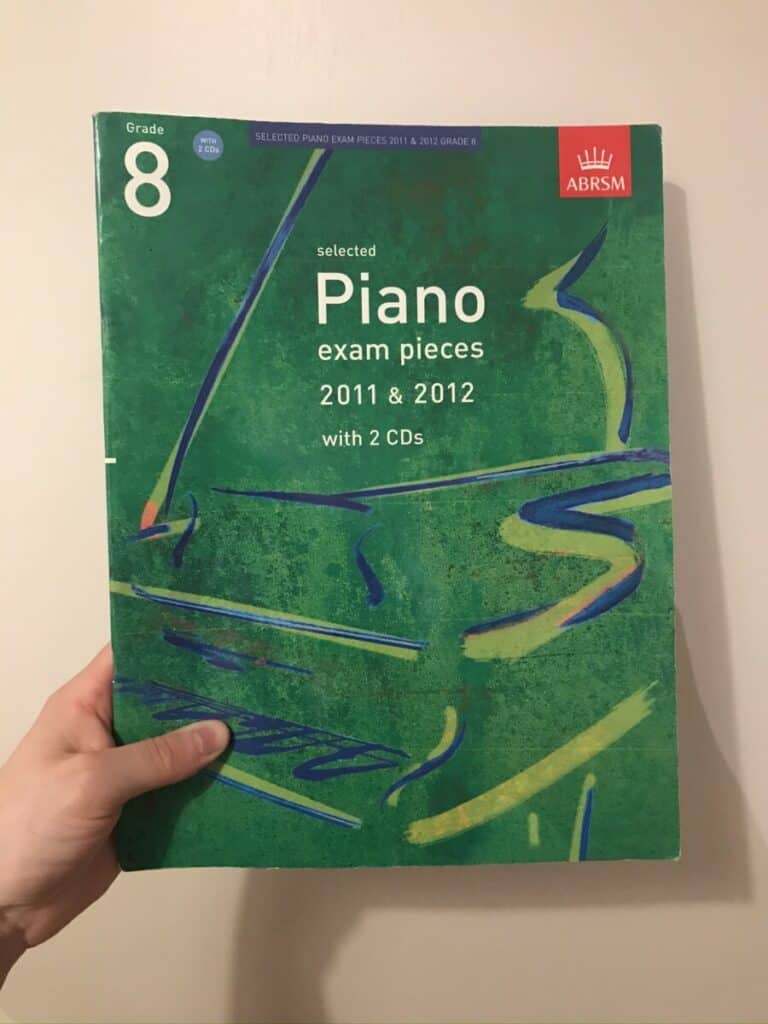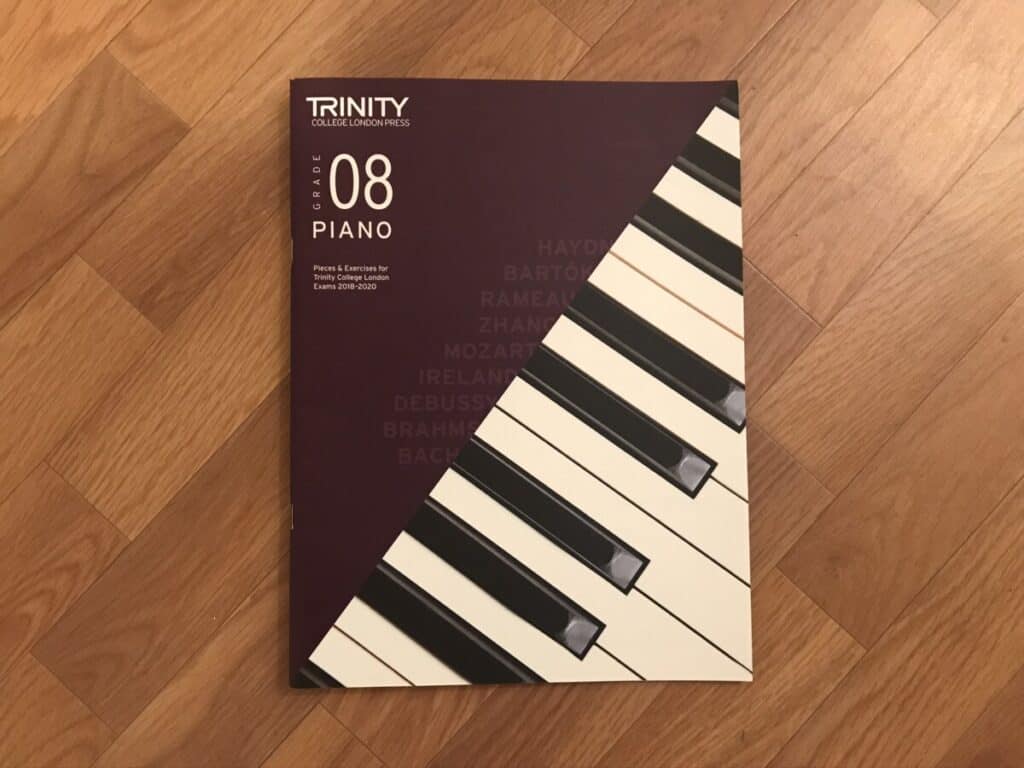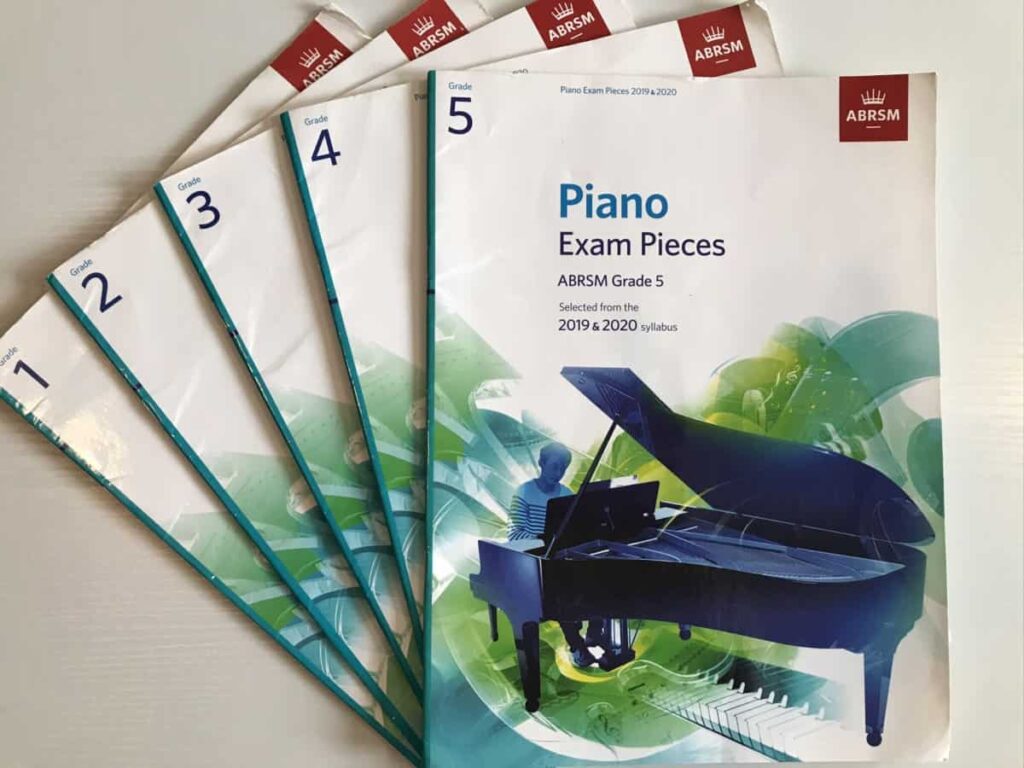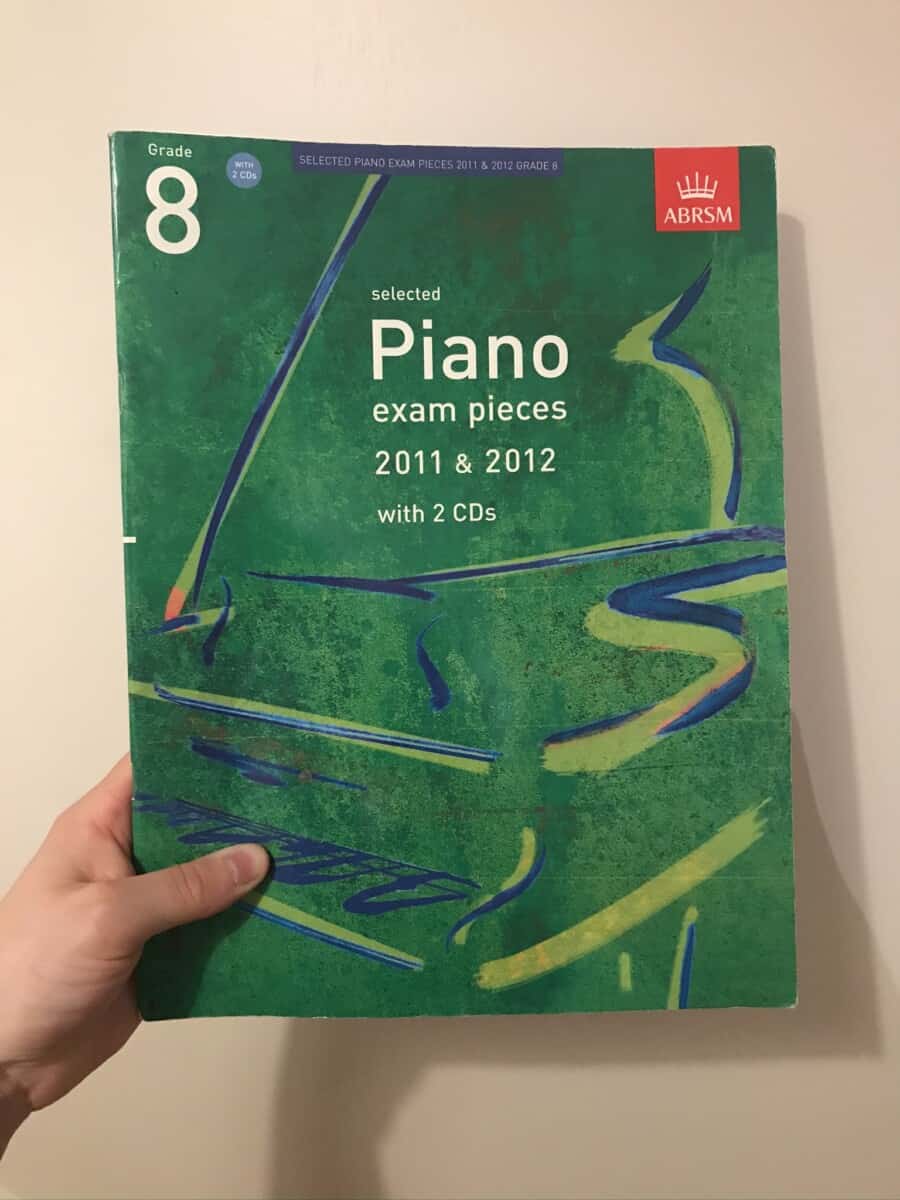
My students that are working towards piano grades have all at some point asked me how long it usually takes to reach grade 8 piano. To those just starting out, grade 8 often seems so far in the distance, but as they progress through the grades it feels like a more realistic goal. I’ll discuss some of the factors that affect how long it takes below, but here’s what I usually say:
Children who get to piano grade 8 have often been playing for around 10 years. Some adults and older teenagers can do grade 8 piano in 3 years if they really want to, but will miss some of the technical foundations. 5 – 8 years is more typical.
For how long it took me personally, see further down.
How long it takes to get to grade 8 varies so much from person to person though, depending on a number of factors including:
The Age You Started Learning Piano
In general, adults and older teenagers will progress faster with piano than young children who put in an equivalent amount of effort. This is because adults and older teenagers can grasp the music theory concepts quicker, and they also have the ability to research and learn elements for themselves if they want to.
This means that, if all the other factors in the rest of this article are controlled for, up until adulthood the older a person is when they start learning the piano, the quicker they will be able to get to grade 8.
If you have already dabbled at the piano informally or already have some music theory understanding before beginning to formally learn the piano, then this will also give you a head start.
Whether Piano Is Your First Instrument
Along these lines, if you can already play a different instrument before you start learning the piano, this will decrease the time it will take to get to grade 8 on piano.
There is a lot of finger dexterity, coordination and music theory understanding that can be transferred from one instrument to the next.
However, this is by no means a requirement to be able to achieve grade 8 reasonably quickly if that is your goal.
How Often You Practice
Everyone knows that the more practice you do, the quicker you progress. But what is arguably more important than the total amount of time spent practising is the frequency of your practice.
If person A and person B spend the same total time practising each week, and person A spreads their practice out so that they are practising a bit every day, but person B does a few longer practice sessions and then has a few days off, then if all other factors are controlled for, person A will progress quicker than person B.
This is because a good night of sleep consolidates all the learning of the previous day, as laid out in the book Why We Sleep by sleep scientist Matthew Walker. The more opportunities you have for a practice session followed by a night of sleep, the better, even if you can only fit in 5 minutes of practice.
Along with all the other benefits of making sure you get enough good quality sleep if you can, this means that sleeping for longer could actually get you to grade 8 quicker without you having to put any extra effort in!

In terms of how much you should practice in total, this will of course vary from person to person but the one thing that you can count on is progressing from one grade to another requires more and more total practice time each time you go up a grade, so at each grade you will either need to increase your total practice time compared to the previous grade, or be prepared for progress to take longer.
Time Spent Learning Non-Grade Repertoire
The piano grades system should ideally be more of a marker and a guide of progress, rather than being the only materials that you ever learn from.
The more time you spend in your lessons looking at a variety of repertoire, the better your overall piano skills will develop, but the longer it will likely take you to achieve each grade exam.
You and your teacher will need to find a balance that works with your goals.
But if you are inclined to rush through the grades then you need to ask yourself whether the benefit of having that qualification (i.e. for UCAS points etc., or for your ego) is more important than the benefits that playing more repertoire have on developing your piano skills.
Having taken the grade 8 exam is not a prerequisite for being a competent pianist, and really if you get to taking grade 8 at any age then that is a great achievement.
Whether You Skip Any Grades

Working on all the grade materials in the lead up to taking a grade exam takes time. That is time that could be spent improving your piano skills in other ways.
If your only goal is to get to grade 8 as quickly as possible, then missing out taking some of the actual in-between grade exams could be away to achieve that.
For more information on skipping grades, read my other article here:
Can You Skip Piano Grades? Things to Consider
How Much You Enjoy It
It makes sense that the more you enjoy playing and practising the piano, the more time you will want to spend on it per week, and therefore the quicker you will likely progress.
However, it’s not just the increase in formal practice time that gives those who enjoy it the most a leg up.
Those who really enjoy playing the piano will seek out their own music to play, independently from the music they are working on with their teacher in their piano lessons. The more music they have a go at playing, the better their overall playing, and in particular their sight reading, will become.
For example, when I began learning the piano, I wasn’t particularly good at sight reading. I used to intentionally practice sight reading using the grade syllabus resources, but didn’t see much improvement.
When I was around grade 2 or 3 and had a certain foundational piano skill such that I was able to pick up random music and have a go at playing it, just for my own enjoyment, then I suddenly began spending hours a day just playing through anything I could get my hands on. It was always full of mistakes but that wasn’t the point. I was simply playing for fun.
After years of this, and having ditched trying to actively improve my sight reading through the greater sight reading exercises, I realised that sight reading no longer scared me, and in fact I actually started to enjoy sight reading, even under pressure.
By the time I took the grade 8 exam, not only was I confident that I would do well in the sight reading part of it, but I was able to learn new music quickly as well. Those two skills set me up well for my future piano playing too.
Do You Need a Piano Teacher to Do Grade 8 Piano?
You don’t technically need a piano teacher in order to take grade 8 piano, or any piano grades. Individuals are able to enter themselves for piano exams on their own, and all the syllabus information is available online if you want to teach yourself.
However, most people find that having a piano teacher is really helpful, because you have access to a personalised, tailored approach to your learning with individual feedback that you can’t get elsewhere.
Case Study
If it is helpful, here is the timeline of when I personally took each piano grade. But first, some context on how the above factors applied to me:
I began piano lessons in Spring 2003 at the age of 6, and piano was my first instrument. I did a lot of practice at every stage. Bear in mind that piano was the thing that I enjoyed the most, and I went on to do music as a degree and as a career. I took all 8 piano grade exams (i.e. I didn’t skip any), but I actually didn’t spend much time learning non-grade repertoire formally in my piano lessons until after grade 8.
| Grade | Date of Exam | Age |
| 1 | Autumn 2004 | 8 |
| 2 | Spring 2006 | 9 |
| 3 | Spring 2007 | 10 |
| 4 | Autumn 2007 | 11 |
| 5 | Summer 2008 | 11 |
| 6 | Summer 2009 | 12 |
| 7 | Summer 2010 | 13 |
| 8 | Spring 2011 | 14 |

